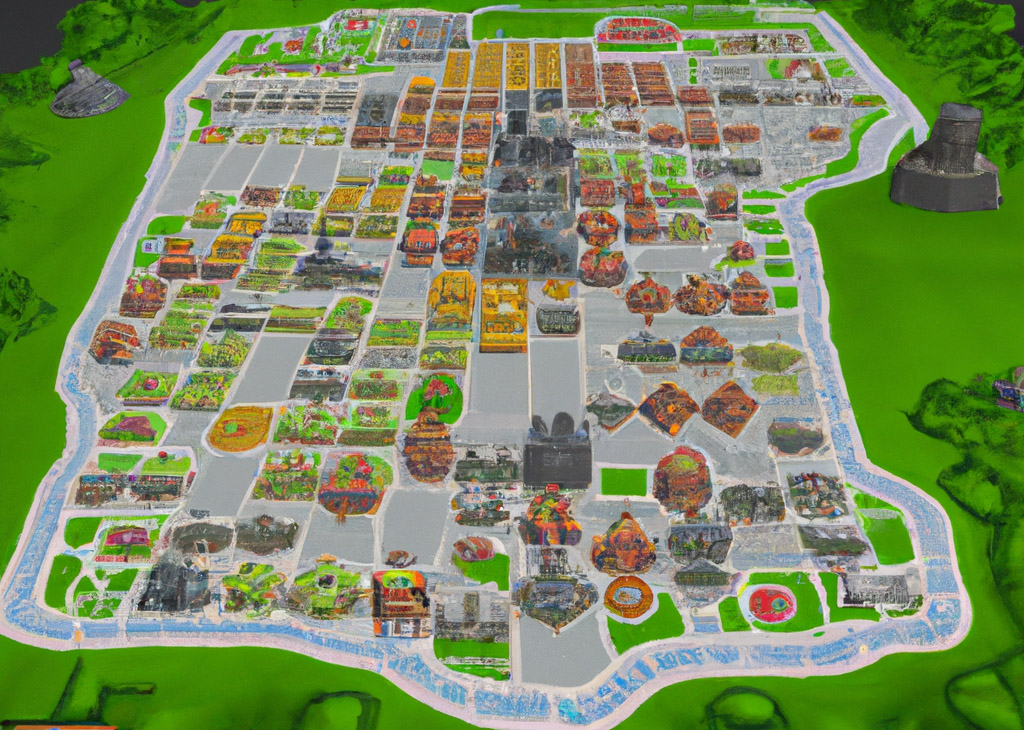The metaverse (and NFT based games with it), a term coined by sci-fi author Neal Stephenson to describe a virtual shared space, is becoming a reality as technology advances and the internet becomes increasingly integrated into our daily lives. One exciting development in the metaverse is the use of non-fungible tokens, or NFTs, to create unique and immersive gaming experiences.
NFT-based games allow players to own and trade virtual items with real-world value. These items can range from in-game currency and weapons to digital art and collectibles. NFTs are stored on blockchain technology, which ensures their authenticity and scarcity, making them highly sought after by collectors and gamers alike.
One example of an NFT-based game is CryptoKitties, a game in which players can breed, collect, and trade virtual cats. Each cat is represented by an NFT, and the game has gained widespread popularity due to its cute and collectible nature. Another example is Axie Infinity, a game that combines NFTs with environmentalism. Players can breed, raise, and battle creatures called Axies, and the game also includes a feature that allows players to plant real trees in the game world.
NFT-based games are just one way that the metaverse is becoming more immersive and interactive. As the technology continues to advance, we can expect to see even more innovative and exciting NFT-based games and experiences in the metaverse.
NFT-based games are a exciting development in the metaverse, allowing players to own and trade unique virtual items with real-world value. These games are just one example of the immersive and interactive experiences that the metaverse has to offer, and we can expect to see even more innovation in the future.
The impact of the crypto collapse on NFT based games
The popularity of metaverse games, which are virtual worlds that users can interact with in real-time, has been on the rise in recent years. Many of these games use non-fungible tokens (NFTs) to represent unique in-game items or experiences that can be bought and sold for real-world value. However, the recent collapse of the cryptocurrency market has had a negative impact on the popularity of metaverse games.
When the value of cryptocurrency falls, it becomes less appealing for players to invest in NFTs. This is because the value of the NFTs is often tied to the value of the underlying cryptocurrency. As a result, the demand for NFTs has decreased, leading to a decrease in the popularity of metaverse games that use them.
In addition, the volatility of the cryptocurrency market can create uncertainty and risk for players who are considering investing in NFTs. This can deter potential players from entering the metaverse gaming market and NFT based games in particular, further contributing to its decline in popularity.
It’s worth noting that the popularity of metaverse games is not solely dependent on the cryptocurrency market. There are other factors at play, such as the quality of the game itself and the level of player engagement. However, the cryptocurrency market does play a significant role in the popularity of metaverse games that use NFTs.
In conclusion, the recent collapse of the cryptocurrency market has had a negative impact on the popularity of metaverse games that use NFTs. The decreased demand for NFTs and the uncertainty and risk associated with the volatile cryptocurrency market have contributed to this decline. While the popularity of metaverse games is not solely dependent on the cryptocurrency market, it is an important factor to consider.
Will there be a future for the Metaverse?
The increasing popularity and mainstream acceptance of cryptocurrency and blockchain technology is a crucial factor. As these technologies become more widely understood and adopted, it is likely that NFT-based games will also become more popular.
Also we should consider the increasing prevalence of digital assets in our daily lives. More and more people are buying and selling digital goods online, and NFTs provide a way to authenticate and securely trade these assets. This trend is likely to continue as the internet becomes an even more integral part of our lives.
The potential for NFT-based games to create new and innovative gaming experiences is another reason to be optimistic about their future. By using NFTs to represent unique in-game items or experiences, developers can create games that offer players a level of ownership and immersion that is not possible with traditional gaming models.











